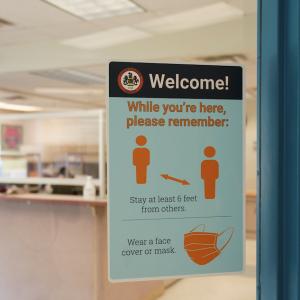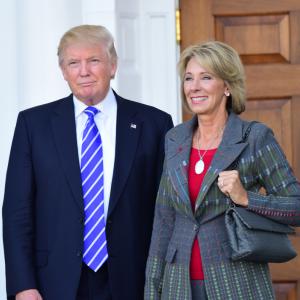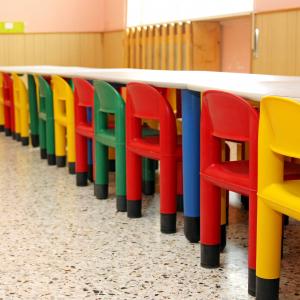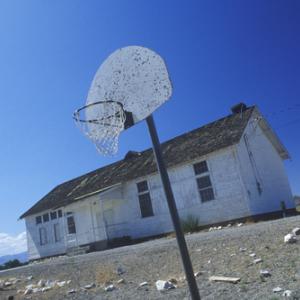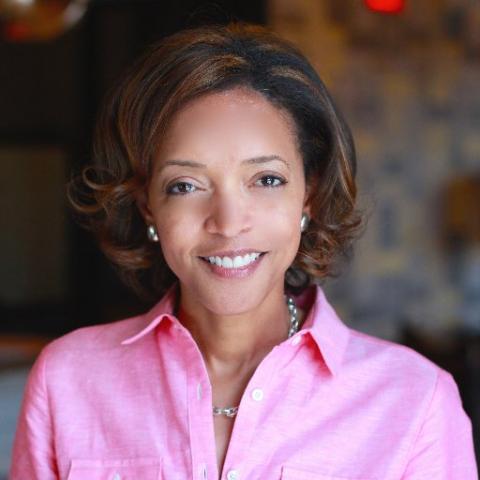
Nicole Baker Fulgham is the founder and president of The Expectations Project. She is a former Teach For America vice president, public school teacher and author of Educating All God’s Children: What Christians Can & Should Do to Help Improve Low-income Public Schools for Kids.
Posts By This Author
Five Principles That Must Guide School Reopenings
Hybrid model. Synchronous learning. Pandemic pod. These words have quickly become the new normal when parents talk about school this fall. Every school district is scrambling to figure out how to deliver quality instruction while keeping students, families, and educators safe from COVID-19. They face a dizzying array of conflicting choices and, maddeningly, there are no simple solutions. The entire schooling dilemma is like a proverbial house of cards: We gently pull out a single card and the entire creation collapses.
Will Betsy DeVos Uphold These Faith-Rooted Principles on Public Education?
Later today U.S. Senate confirmation hearings begin for Betsy DeVos, President-elect Donald Trump’s pick to lead the Department of Education. If confirmed DeVos will lead the primary government agency tasked with establishing policy and administering most federal funding for public education and enforcing federal educational laws regarding civil rights.
Cradle-to-Prison vs. Kindergarten-to-Graduation
With a new school year upon is us it's appropriate to take a closer look at the troubling and complicated relationship between our nation’s public schools and its criminal justice system.
Growing up in an economically challenged neighborhood in Detroit, it still pains me to remember the sheer number of kids, disproportionately African-American boys, who passed through the juvenile detention system and would later go on to either spend time in prison or who are still in prison now. America’s criminal justice system was omnipresent.
The sad fact is that not much has changed. It’s actually gotten a whole lot worse. America represents less than 5 percent of the world’s population but we have 25 percent of the world’s prisoners. Since the 1970s our prisons have grown by 700 percent. This growth has been most explosive and disproportionate among people of color. Looking at males over the age of 18, 1 out of every 15 African-American men and 1 in 36 Hispanic men in the United States are currently incarcerated. Meanwhile, only 1 in every 106 of white males over 18 are behind bars.
It’s tough to ignore the glaring racial disparities at the center of America’s prison industrial complex. As an African-American woman, Christian, and mother, it breaks my heart and, at times, even tests the limits of my faith. But I also believe in a faith that can move mountains. When it comes to our nation’s criminal justice system, we’ve got mountains to move.
How Can People of Faith Help Students Achieve Their Potential?
Most Americans share a common understanding that many public schools in poor neighborhoods aren’t great. It’s rare that I engage anyone who doesn’t know this basic fact on some level. But what’s less common is a deeper understanding of the extent of the problem. And sadly, even less common than that? Finding individuals who express a deep conviction that educational inequity can be eliminated. Faith communities are poised to add our voices to this much-needed conversation.
Fifteen million children live in poverty in the United States. Given poverty’s impact, many of these children already face additional challenges in their lives. For many young people, education can be “the great equalizer.” A high quality school can provide students with the necessary foundation to go to college and have a variety of opportunities opened to them. Poverty can become a thing of the past. But students growing up in poverty are more likely to attend low-performing public schools. In fact, only 22 percent of children who have lived in poverty do not graduate from high school. Only 9 percent receive college diplomas. And, not surprisingly, given our nation’s historical intersection of racial injustice and poverty, African American, Latino, and Native American students experience some of the nation’s biggest educational inequities.
Beyond 'Superman'
I'VE BEEN INVOLVED in public education for more than 15 years—as an urban public school teacher, a researcher and policy analyst, a teacher trainer, a parent, and an advocate. I never dreamed I’d live to witness such raucous and juicy debates about how to improve our nation’s lowest-performing public schools. Throughout my career, public education garnered the occasional feel-good story about a phenomenal, mythical “inner city teacher” and, more often, the litany of stories about how urban and rural schools are in complete disarray.
But during the last few years—oh my! We’ve witnessed the onslaught of message-laden documentaries such as Waiting for “Superman” and The Lottery, which are celebrated by many and derided as teacher-bashing propaganda by others. The birth of the “education reform” movement has generated such groups as Democrats for Education Reform, Students for Education Reform, and Stand For Children. Again, lauded by many, these groups are vigorously criticized by others because of the way they push against policies, structures, and institutions in public education.
Regardless of what side of the education reform debate we may choose, most Americans agree on one thing: Public schools must improve. The academic achievement gap between wealthy white students and low-income students of color must be eliminated. It’s unconscionable that 50 percent of kids growing up in poverty drop out of high school. How do we allow a system to exist where poor children in the fourth grade are already performing three grade levels behind children in wealthier neighborhoods? What future do we anticipate poor and minority children will have with these academic outcomes?
Wisdom of a 5th-Grade Solomon
"Ms. Baker, why are you teaching here?" one student, whom I'll call Solomon, inquired during one of our after school tutoring sessions. "You went to college," he continued unabashedly.
Serve Your Country: Teach
I grew up in a working-class, African-American neighborhood in Detroit. I was fortunate to have two college-educated parents who knew how to set my brother and me up for success in school. They also knew how to navigate the public school system to ensure we got the best education possible. That support helped me gain entry into a competitive college prep public high school. My path to college was clear: 99 percent of the graduates at my high school went on to four-year colleges and [...]
